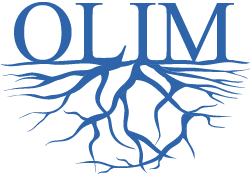
 OLIM (lat. 'formerly'; 'once') is a Munich network to explore the origins of evolution. The aim is to find experimental facts that unveil the first steps that allowed molecules to evolve autonomously into living systems. We want to reconstruct these first steps in the lab, using experiments to bridge from dead molecules to the living state of matter.
OLIM (lat. 'formerly'; 'once') is a Munich network to explore the origins of evolution. The aim is to find experimental facts that unveil the first steps that allowed molecules to evolve autonomously into living systems. We want to reconstruct these first steps in the lab, using experiments to bridge from dead molecules to the living state of matter.
Origins of Life research is still in its exploratory phase. With the fast progress in biochemistry, nanoscience and analytics, the field is making very fast progress. Showing in the lab how the first steps of evolution could be implemented seems technologically possible. The field is unfolding into new branches at high speed and is connecting know-how from very different disciplines. The Nanoscience of the Origin of Life needs to be explored. The LMU with its broach expertise is a uniquely research ground for the unfolding and young discipline of experimental Origins of Life research.
The aim is to uncover the beginning of biology. Life is abundant around us - plants, microbes, larger animals. This was not the case on early Earth. What processes could allow non-living matter to create the evolutionary machinery of replication, mutation and selection? How could life establish itself so robustly? The living state we see everyday around us is the most daunting puzzle of science. It is time to break the problem into small, experimentally testable hypothesis.
This is a multidisciplinary undertaking from astronomy to geology, chemistry, physics and biology. Astronomy describes how planets and first molecules can form in space, geology tries to reconstruct the bare materials and conditions available on early Earth, chemistry unveils the pathways to create the first information bearing molecules such as RNA or proteins. Physics asks for robust non-equilibrium conditions and boundary conditions to supply the negentropy to create biological information while biology tells us about the evolutionary track record.
What are probable geological conditions to make the transition from dead to living matter? Which non-equilibrium processes of early Earth can be harnessed, which synthetic pathways can lead to the ancient biomolecules? Can modern thermodynamics provide a framework for evolvable systems far from equilibrium? What lessons can we learn from modern Nanoscience such as for example DNA Origami? How far back can we trace biological signatures towards the origin of early metabolism and early translation?
Topics to focus on will include, but are not constrained to:
- The origin of translation and the genetic code
- Connections between DNA Origami of the Ribosome
- Molecular evolution only by hybridization
- The role of geological FeS in early metabolism
- Nonequilibrium theory of molecular Darwinian evolution
- How can thermal and pH gradients host and drive autonomous evolution
- Abiotic rocky microcompartment walls and their pH, salt and thermal gradients
- Unconsidered geological conditions of early Earth
- Molecules from space: the astronomy of planet formation
We will bring together the scientists of these disciplines within Munich which are genuinely interested in understanding the first steps to create the evolutionary dynamics which has given us from planetary dead matter the rich life we know today. The short term goal will be to establish a discussion platform and the mid-term goals are to promote Origins of Life Research in Germany and Europe and to focus the research in Munich with an SFB/TRR proposal.
Dieter Braun